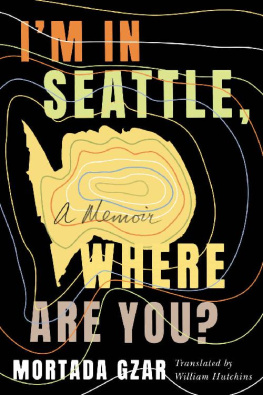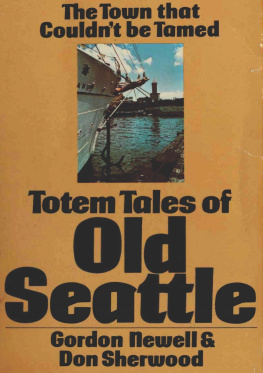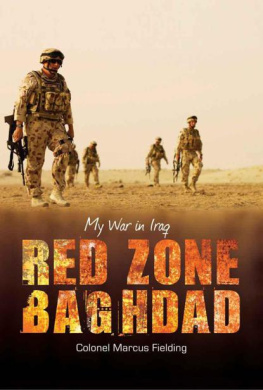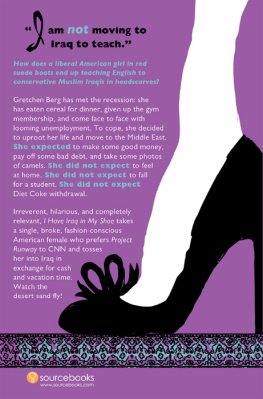Praise for Im in Seattle, Where Are You?
Wildly inventive... Built on keenly observed cultural, political, and personal details and populated by vivid characters, this bookillustrated throughout with Gzars starkly surreal ink drawingsdraws readers into a narrative web that is by turns shocking, funny, and deeply moving. A magical tragicomic story of love, sacrifice, and conviction.
Kirkus Reviews
An exquisite story of life and lost love... Gzars nonlinear narrative and lyrical prose convey his deep desire to reunite with his lover... Hard to put down and difficult to forget.
Publishers Weekly (starred review)
At once hilarious and truly haunting, Im in Seattle, Where Are You? is a story of so much: war and savagery, queerness and exile, love and loss. Mortada Gzar is the rare memoirist who understands memory itselfillogical, impossible, magical.
Rumaan Alam, author of the National Book Awards finalist Leave the World Behind
A memoir more formalistically creative than most novels! Mortada has extraordinary experiences, a generous heart, and incredible talent.
Anton Hur, PEN Translates award-winning translator
Mortada Gzars memoir, Im in Seattle, Where Are You?, is a dazzling account of love, loss, and the complications of exile. This Iraqi novelist, filmmaker, and artista Whitman-like figure who contains multitudes in his embrace of the cosmosunderstands that stories, like meteors, obey the laws of physics. And what emerges in the stories he tells to an array of characters, including the statue of a vagrant, is proof that while their energy does not fade or increase they will shape the lives and thinking of those who have the good luck to hear them. This is exactly the book to read in this fraught time.
Christopher Merrill, author of Self-Portrait with Dogwood
Praise for Mortada Gzar
Gzar uses sharp criticism, irony and sarcasm to bring to the fore the devastating influence of the long war between Iraq and Iran that affected even minute details of life in Iraq. His characters and setting present the side-effects of the destructive war with Iran and the 2003 occupation.
Dr. Waleed Al-Bazoon in his review of My Beautiful Sect, ArabLit.org
The greatest success of Al-Sayyid Asghar Akbar ( Mr. Little Big ) is in building a space that links past with present and wonder tales with bleak contemporary realities like the American occupation of Iraq.
Mohammed Khudayyir, author of Basrayatha: Portrait of a City
Al-Sayyid Asghar Akbar is one of the few Iraqi novels that draws successfully on other arts, especially poetry. It can stand confidently beside the best Iraqi novels with its rich content and magical technique.
Abd al-Khaliq al-Rikabi
Al-Sayyid Asghar Akbar by the brilliant writer Mortada Gzar offers a unique, magical approach to prose narration. It is an entertaining novel with a surreal atmosphere that offers us a panoramic portrayal of the life of the city of Najaf and its ordinary citizens. Contemporary scenes blend with age-old symbols in it.
Lotfiya al-Daylami
This novel excavates the past, its characters lives, and what they have deliberately concealed.
Ali Abbas Khafif
Al-Sayyid Asghar Akbar is a distinctive Iraqi tragedy saturated with comedy that Mortada Gzar has written with a unique lexicon. Its characters are drawn from the bottom of Iraqi society, from its margins. In this novel we hear the voices of people who otherwise are never allowed to express an opinion openly.
Saad Mohammed Raheem
Al-Ilmawi ( The Scientismist ) was written by the skillful dreamer Mortada Gzar, who is an engineer, an artist, and a filmmaker. Its events are described by an imagination that is open full throttle. Twin brothers, Abbas and Fadhil, live through the period from the 1990s to 2003. One brother invents a manikin that answers questions but self-destructs when interrogated by a British commander.
Maysalun Hadi, author of Prophecy of Pharaoh


Text and illustration copyright 2021 by Mortada Gzar
Translation copyright 2021 by William Hutchins
All rights reserved.
No part of this book may be reproduced, or stored in a retrieval system, or transmitted in any form or by any means, electronic, mechanical, photocopying, recording, or otherwise, without express written permission of the publisher.
Translated from Arabic by William Hutchins. First published in English by Amazon Crossing in 2021.
Published by Amazon Crossing, Seattle
www.apub.com
Amazon, the Amazon logo, and Amazon Crossing are trademarks of Amazon.com, Inc., or its affiliates.
ISBN-13: 9781542016575 (hardcover)
ISBN-10: 1542016576 (hardcover)
ISBN-13: 9781542016582 (paperback)
ISBN-10: 1542016584 (paperback)
Cover design by David Drummond
Interior illustrated by the author, Mortada Gzar
First edition
For Morise
Contents
Authors Note and Acknowledgments
Except for my name and the names of public figures, places, and actual events, most names in this book are my invention. For people represented as characters in my book, especially those who live in dangerous regions, I have chosen names quite unlike their given names, and obscured or altered identifying details.
I mention Dr. Michael Failla, though, because I want to thank him for the helping hand and advice he provided me on my journey to Seattle. I wish also to thank my six friends who are referred to in this book as sage monkeys and monks. In fact, I thank their entire circle of friends and acquaintances. I thank, too, Dr. Donald McCullough, Susan Moss, Mr. J. L., and also the people whose names I have avoided mentioningespecially my brothers, family, and friends in Basra, Baghdad, Iowa, and Lebanon.
Mr. Morise, this is what I have been able to recount. If this narrative does not suffice, you will understand that stories, like meteors, obey the laws of physics and that their energy does not fade or increase. The tales I have avoided telling today wont disappear. They will vibrate and simmer in heads and hearts until they find their place in a story or tale that we shall write.
And this, dear reader, is the book I have managed to write.
One
Im in Seattle! Where are you? This is more than a question; its a game that started ten years ago.
I once told him, Ill come to Seattle. Then Ill call you and say, Im in Seattle! Where are you now? Youll recognize me by the white scarf hanging over my shoulder. Its not pure whitemore like milk white verging on yellow. Its the turban I wore the first time you saw me. Its thin cloth, which resembles the gauze used for bandaging wounds, has aged and lost its whiteness. Ive devised many uses for my turbans cloth since I stopped wearing it. It used to be five meters long when I unfolded it. Now, all thats left is this round shawl a meter and a quarter long. Ive mended it, folded it twice, and placed it around my neck. Unfortunately, it is squeaky clean, because I have washed it repeatedly and rubbed it with dirt and soot to remove his sweat. One day, I unrolled my turban for him and made a carpet on which we slept among the bean plants on the banks of the Tigris. My turban became soiled with his sweat and semen. He polluted it that day, and I could no longer pray with it. I told him that anything of mine he touched, my

Next page












